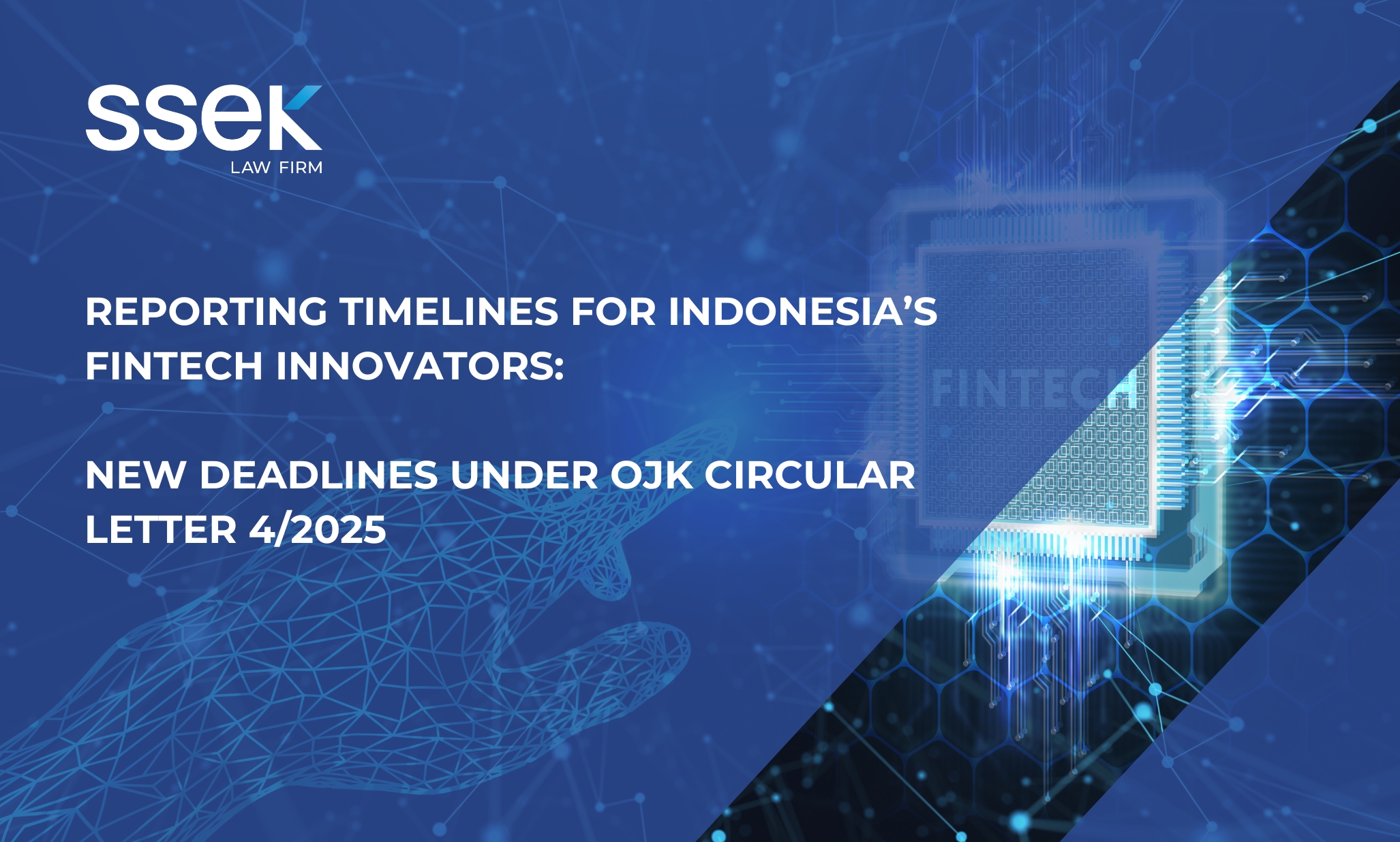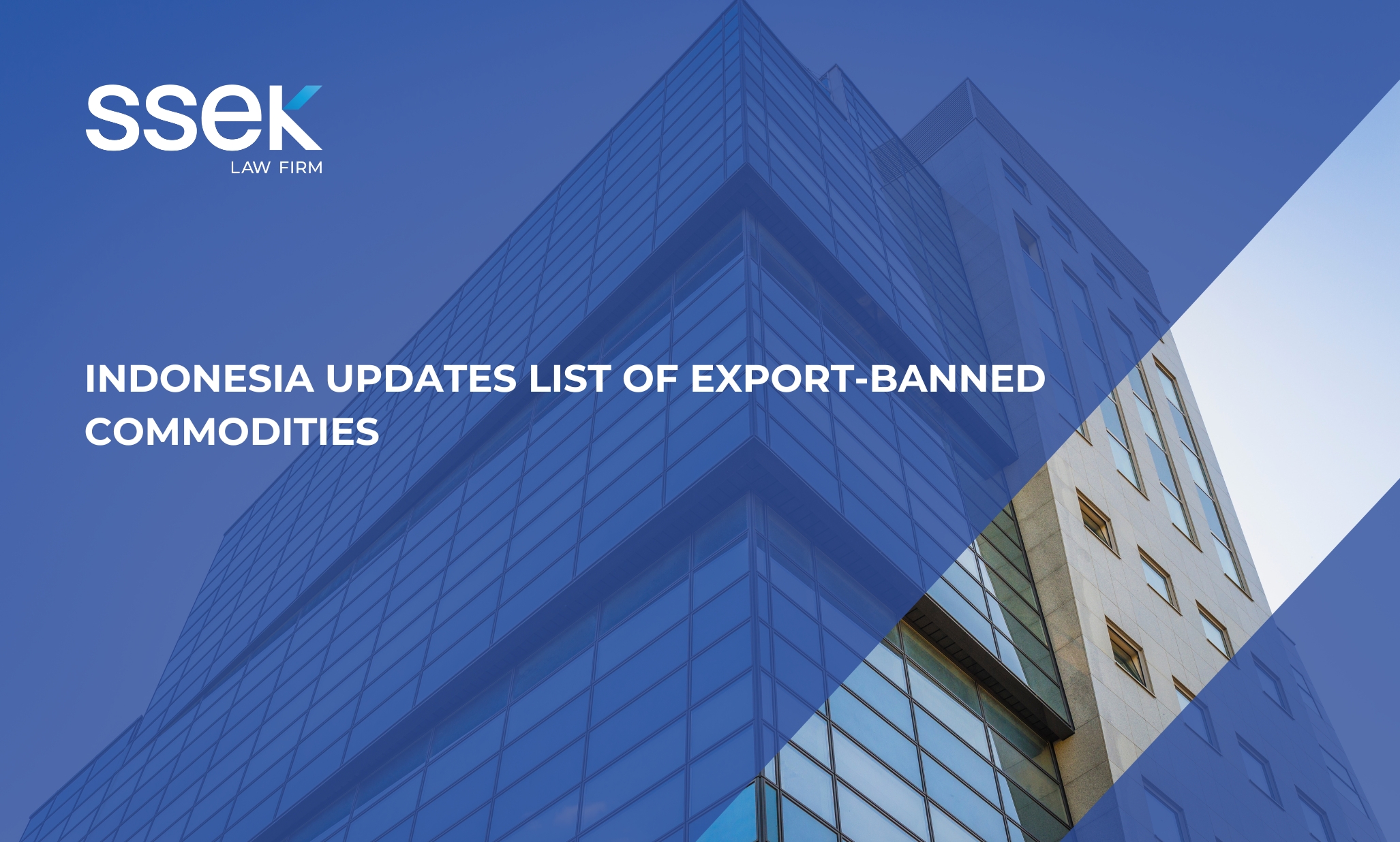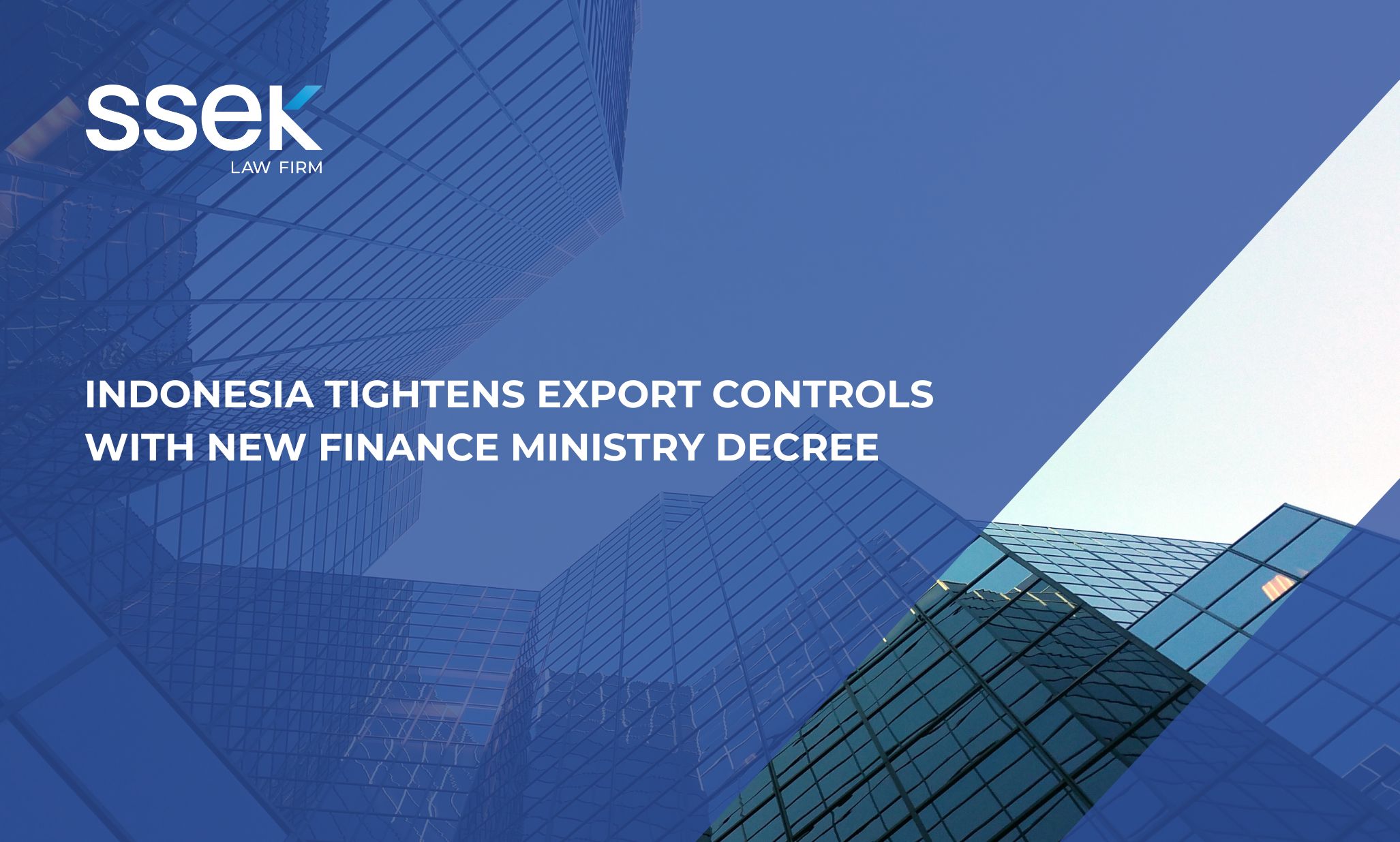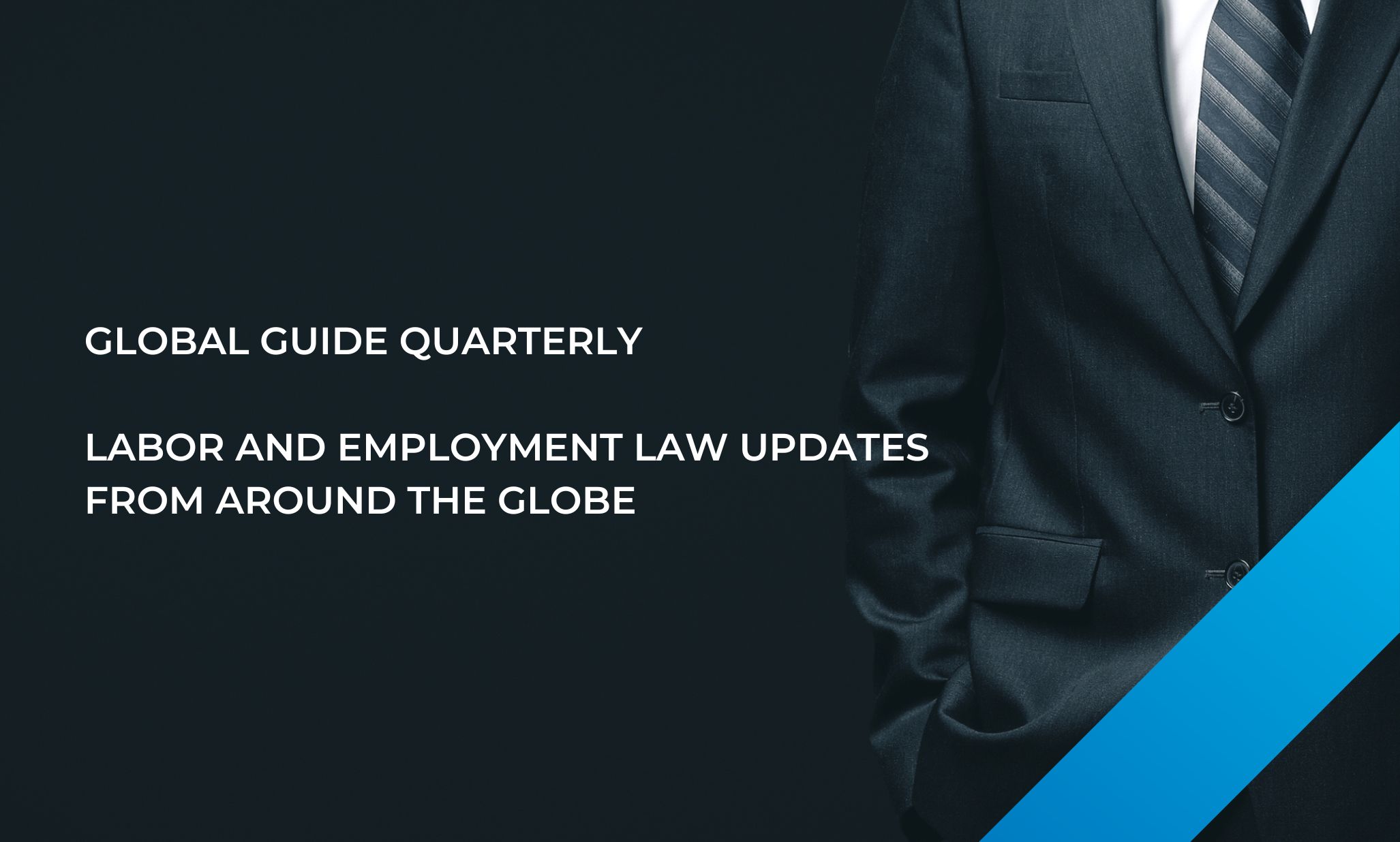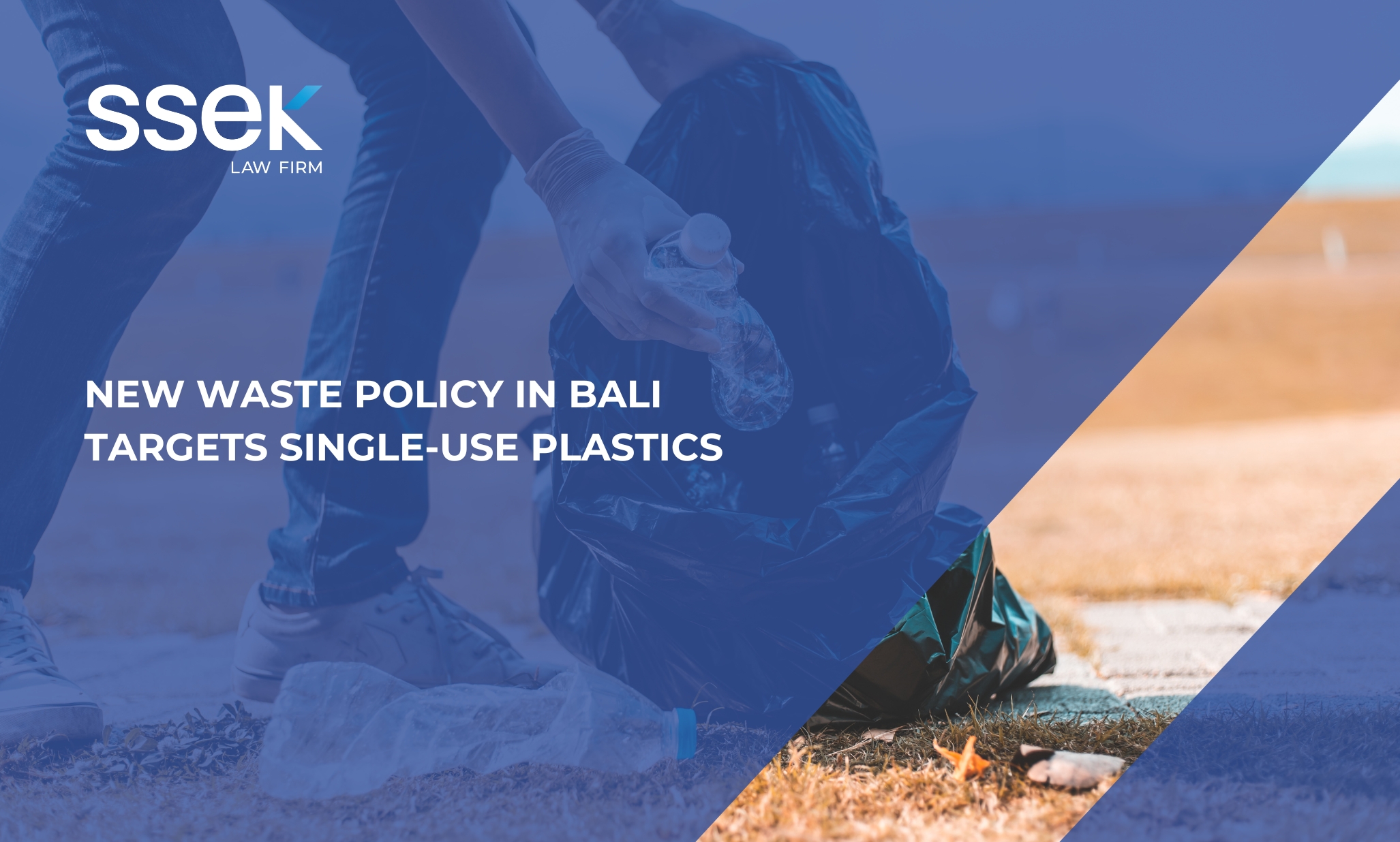

The Financial Services Authority (Otoritas Jasa Keuangan or "OJK") has introduced new rules concerning material transactions and changes of main business activities by public companies in Indonesia. This development should be welcomed by industry players who have been awaiting the issuance of this new regulation since a draft of it was circulated in early 2019.
Almost a decade since the issuance of Bapepam-LK (now the OJK) Rule No. IX.E.2 ("Bapepam-LK Rule IX.E.2"), the OJK has revised and revoked this rule with the enactment of OJK Regulation No. 17/POJK.04/2020 on Material Transactions and Change of Business Activities ("OJK Reg. 17/2020").
We discuss the key and notable changes made by OJK Reg. 17/2020.
1. Broader Definition of Material Transaction
When the official draft of OJK Reg. 17/2020 was circulated, the change that immediately caught the attention of business players concerned the criteria by which a transaction by a publicly listed company (or its controlled subsidiary) would be considered a Material Transaction.
Previously, under Bapepam-LK Rule IX.E.2, a transaction (or series of transactions) could be considered a Material Transaction if the transaction itself fell into one of six different transaction categories including investment in a company, sale of assets, or loans and encumbrances involving the company. These transactions also needed to satisfy the materiality thresholds, set at 20% of the total equity of the publicly listed company, to be considered a Material Transaction.
OJK Reg. 17/2020 removes the exhaustive list of transactions that may be considered a Material Transaction and instead focuses solely on whether the transaction itself satisfies the materiality thresholds. While the elucidation of OJK Reg. 17/2020 does offer additional examples of transactions that may be considered Material Transactions, this list is not exhaustive. This means that any transaction can be considered a Material Transaction, requiring certain disclosures and approvals (as may be applicable) pursuant to OJK Reg. 17/2020, only if it meets the Materiality Thresholds set out under the new regulation.
2. Changes to Materiality Thresholds
In addition to removing the exhaustive list of activities that may be considered a Material Transaction, OJK Reg. 17/2020 introduces a new approach for the calculation of (i) Materiality Thresholds for the acquisition or disposal of a business division; (ii) Materiality Thresholds for publicly listed companies with negative equity; and (iii) Materiality Thresholds for the dilution of a publicly listed company's ownership in a controlled subsidiary resulting in the controlled subsidiary being no longer included in the publicly listed company's consolidated financial statement.
i. For the acquisition or disposal of a business division, the Materiality Threshold is satisfied if:
a. the transaction value is at least 20% of the public company's equity;
b. the total value of the object of the transaction is at least 20% of the public company's total assets;
c. the net profit generated from the object of the transaction is at least 20% of the public company's net profit; or
d. the operating revenue derived from the object of the transaction is at least 20% of the public company's operating revenue.
ii. For companies with negative equity, the Materiality Threshold is set at a lower number, i.e. 10% of the total equity in general. This 10% figure shall also be applicable for the acquisition and/or disposal of a business division as noted above.
iii. For the dilution of a publicly listed company's ownership in a controlled subsidiary, the dilution is considered to satisfy the Materiality Threshold if the calculation of total assets, net profit or operating revenue of the controlled subsidiary, divided by the total assets, net profit or operating revenue of the publicly listed company, is equal or more than 20%.
This calculation must be based on audited financial statements from within 12 months before (i) the date of dilution, if the calculation is less than 50%, or (ii) the date of the general meeting of shareholders ("GMS") approving the dilution of the publicly listed company's ownership in its controlled subsidiary if the calculation is more than 50%.
For other possible transactions by a publicly listed company or its controlled subsidiary, the general Materiality Threshold of 20% of total equity remains applicable.
In calculating the equity (save for the dilution of a publicly listed company\'s ownership in a controlled subsidiary as noted above), OJK Reg. 17/2020 maintains the previous approach under Bapepam-LK Rule IX.E.2 of referring to an audited annual financial statement, reviewed quarterly financial statement or other audited interim financial statement. The date of the financial statement used for calculating Materiality Thresholds and the date of the calculation of the Materiality Thresholds shall not be more than 12 months before the date of the transaction or the date of the GMS (as applicable).
3. Procedural Changes
Under OJK Reg. 17/2020, once a transaction (or series of transactions) satisfies the Materiality Thresholds, then, similar with Bapepam-LK Rule IX.E.2, certain procedures must be adhered to by the public company. These procedures include the procurement of an appraisal report for the transaction dated no later than six months before the date of the Material Transaction or the date of the GMS approving the transaction (as applicable), disclosure of the Material Transaction to the public and the OJK, and convening a GMS if required.
However, different from Bapepam-LK Rule IX.E.2, where a GMS is only required if the Material Transaction exceeds 50% of the total equity, OJK Reg. 17/2020 now requires a GMS if:
a. the value of the acquisition or disposal of any business division by a publicly listed company with negative equity exceeds 25% of its total assets; or
b. the independent appraiser declares a non-affiliatedMaterial Transaction to be "unfair". OJK Reg. 17/2020 does not provide further explanation of whether under an "unfair" opinion the Material Transaction would automatically be considered a conflict of interest transaction that may require a different voting threshold in a GMS.
Another procedural difference under OJK Reg. 17/2020 is that now a publicly listed company must disclose in its annual report if a Material Transaction is not concluded within 12 months after the date of the GMS approving the transaction. If the public company (or its controlled subsidiary) still plans to continue the transaction, it would need to procure another approval from the GMS and follow the disclosure procedures for a Material Transaction again. If the GMS rejects the Material Transaction, the publicly listed company may wait 12 months and then re-propose the transaction to the GMS. Bapepam-LK Rule IX.E.2 was silent on these matters.
For the public disclosure requirement, OJK Reg. 17/2020 no longer requires the disclosure to be made in a newspaper. Rather, a disclosure on the websites of the publicly listed company and the Indonesia Stock Exchange is sufficient.
4. Independent Shareholder Approval
Another notable change in OJK Reg. 17/2020 is an expansion of the requirement to obtain independent shareholder approval. Bapepam-LK Rule IX.E.2 was silent on this issue, only referring to the requirement to follow the provisions applicable for affiliated and conflict of interest transactions, which may require the approval independent shareholders, if a transaction satisfied the criteria for both a Material Transaction and an affiliated or conflict of interest transaction.
OJK Reg. 17/2020 takes a different approach by explicitly requiring independent shareholder approval for an expanded scope of transactions covering not only affiliated and conflict of interest transactions, but any transaction that could "potentially disrupt" the business continuity of the publicly listed company (or its controlled subsidiary, as applicable). OJK Reg. 17/2020 tries to clarify the types of transaction that could "potentially disrupt business continuity" by providing the following examples:
a. if a transaction can result in a reduction of at least 80% of the operating revenue of the publicly listed company; or
b. if the transaction may cause the public company to experience a loss on a proforma basis.
The foregoing clarification is vague and non-exhaustive. This opens the possibility that the OJK, at its discretion, may deem a transaction "potentially disruptive‚" requiring the public company to convene a GMS to obtain the approval of independent shareholders. Obtaining such approval has in the past been extremely challenging for public companies and we expect that business players will ask the OJK to clarify this provision to limit their exposure.
5. Exemption for Financial Services Companies
OJK Reg. 17/2020 contains a specific exemption for public companies that are also financial services companies under the supervision of the OJK if they meet "certain conditions" as determined by the OJK. Companies that qualify would be exempted from Material Transaction requirements and would only be required to make a disclosure to the OJK at the latest two working days after the date of the Material Transaction. OJK Reg. 17/2020 does not provide further explanation of what "certain conditions" may entail, or whether the relevant company must first secure a written declaration from the OJK certifying that it meets "certain conditions".
6. Changes to the General Exemptions for Material Transactions
As expected, OJK Reg.17/2020 made some changes to the exemption from Material Transaction procedures for certain transactions. Similar with Bapepam-LK Rule IX.E.2, the exemption allows a public company to conduct the transaction without following the Material Transaction procedures except for the disclosure to the public and the OJK.
The most notable change in OJK Reg. 17/2020 is the removal of the following transactions as being exempted:
a. Issuance of non-equity securities through a public offering;
b. Corporate guarantee to secure obligations of a 99% controlled subsidiary;
c. Material Transactions that have been properly disclosed in the prospectus for an Initial Public Offering; and
d. Material Transactions involving assets that are directly related to the production process or core business activities.
The removal of item (d) from exempted transactions is a major shift and amplifies the direction of the OJK in recent years. With this change, the OJK expects that only recurring operational expenditures, e.g. the purchase of raw materials, will be covered under the general exemption for "core business activities". This means that a single land or asset acquisition would likely no longer be exempted from the Material Transaction rules, even if the company tries to argue that the acquisition supports its business activities.
To complement this approach, OJK Reg. 17/2020 includes a separate provision that any recurring activity related to "core business activities" that generate revenue would be exempted from all Material Transaction procedures. This means that no disclosure to the public or the OJK would be necessary for this type of transaction.
OJK Reg. 17/2020 also adds new transactions that are exempted, as follows:
a. Material Transaction between a financial services company and its subsidiary engaging in sharia financial services to develop the subsidiary's business;
b. Internal restructuring of a state-owned enterprises; and
c. Material Transaction conducted through an auction process where the public company acts as a participant in the auction.
7. Amendment to the Provisions Pertaining to Changes of Main Business Activities
OJK Reg. 17/2020 adopts a broader approach in determining whether a public company is to be considered as changing its main business activities. A change of main business activities is considered to occur if:
a. there is an addition of business activities not previously mentioned in the company's Articles of Association;
b. the public company commences a business activity mentioned in its Articles of Association but that its had not previously commenced;
c. there is a reduction of business activities by the company;
d. the company changes all its business activities.
The most notable change is perhaps the inclusion of item (b) above, given the longstanding practice of public companies listing numerous business activities in its Articles of Association without necessarily engaging in such activities.
Key Takeaways
It is clear that the OJK has tried to formalize some its longstanding policies of previous years by issuing OJK Reg. 17/2020. This includes the desire for a more flexible approach in determining whether a transaction is considered a Material Transaction insofar as it satisfies the Materiality Thresholds.
OJK Reg. 17/2020 is scheduled to come into effect and replace Bapepam-LK Rule IX.E.2 on October 21, 2020. So there are still a few months for the OJK to issue clarifications in respect of OJK Reg. 17/2020, particularly for those new provisions highlighted above in dire need of clarification. We will continue to provide updates as the OJK issues these clarifications.
This publication is intended for informational purposes only and does not constitute legal advice. Any reliance on the material contained herein is at the user's own risk. You should contact a lawyer in your jurisdiction if you require legal advice. All SSEK publications are copyrighted and may not be reproduced without the express written consent of SSEK.




